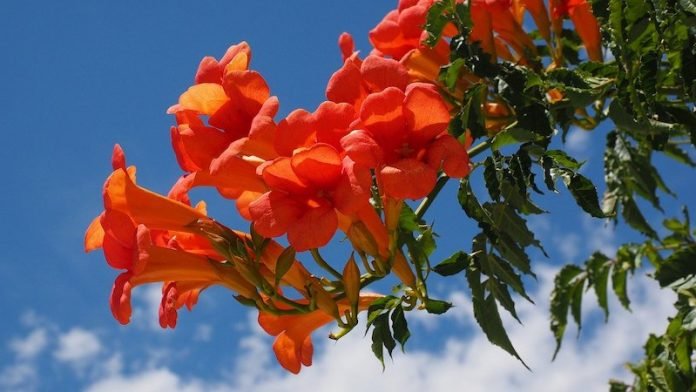
In a new study, researchers have made drug-like molecules inspired by a chemical found in a tropical flower, that they hope could in the future help to treat deadly pancreatic cancer.
The research was conducted by an international team of scientists led by the University of Bath.
Pancreatic cancer is one of the most aggressive and deadly cancers. Around 10,000 patients in the UK per year die from this type of cancer.
Patients have an average survival of less than 6 months. Pancreatic cancer is the third leading cause of cancer-related deaths in the EU, more than breast cancer.
Since pancreatic cancer causes few symptoms, many patients don’t realize they are affected until it has already spread to other organs.
Pancreatic cancer is also very difficult to treat as the tumors have resistance to many anticancer drugs—so these molecules could become a valuable tool in combating the condition.
In the study, the team made three new molecules similar to Grandifloracin, a chemical found in the tropical plant Uvaria grandiflora, which grows in Malaysia, Indonesia, Thailand, and the Philippines.
They found that all three molecules kill pancreatic cancer cells in a petri dish. Two of these killed the cells more effectively than the original Grandifloracin molecule.
The team says pancreatic cancers are especially aggressive and fast-growing, so the tumors develop faster than the blood vessels can supply nutrients to them.
This leads to a lack of nutrients, to an extent that would kill ordinary cells, but the pancreatic cancer cells can survive these ‘austere’ conditions and keep on growing.
The molecules they have identified are so-called ‘anti-austerity’ agents that can remove the ability of the cancer cells to tolerate these starvation conditions, so they will die, whereas ordinary cells with a normal supply of nutrients remain unaffected.
Whilst future work needs to test the new drugs in humans, the researchers say these molecules could become a promising new class of drugs for treating pancreatic cancer.
One author of the study is Dr. Simon Lewis, Senior Lecturer in Chemistry from the University of Bath.
The study is published in the journal ChemMedChem.
Copyright © 2019 Knowridge Science Report. All rights reserved.



